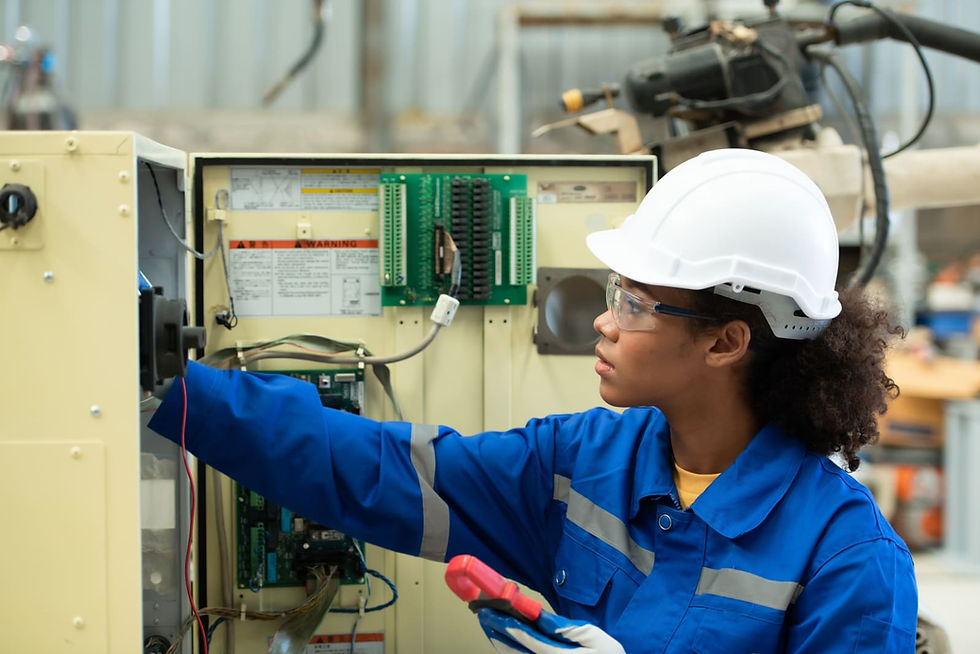Why Pilot Testing is Essential for Distillation and Absorption Process Success
- cemnar0
- Jul 29, 2025
- 2 min read

Introduction: The Critical Role of Pilot Testing in Distillation and Absorption
Distillation and absorption remain cornerstone separation technologies across chemical, pharmaceutical, and refining industries. While well-established, Sulzer's lab and pilot pilot services emphasize that pilot testing is strongly recommended to validate and optimize these processes especially in challenging scenarios to ensure reliable, efficient, and high-quality outcomes.
At Sulzer’s IntecH test centers in Allschwil (Switzerland) and Singapore, pilot testing bridges the gap between conceptual design and full-scale plant operation, providing realistic data using actual feedstocks and flexible, well-instrumented pilot units.
When is Pilot Testing Recommended for Distillation and Absorption?
Sulzer’s pilot services typically advise pilot trials in the following cases:
Mixtures containing impurities or by-components such as salts that may affect phase behavior and separation efficiency
Foaming systems or feeds with solid content that can impede mass transfer or damage equipment
Systems with unknown or unmeasurable vapor-liquid equilibrium (VLE) data, which are critical for design and operation but not reliably predicted by literature or simulation alone
Processes requiring extremely high product purity where performance margins are tight and product quality is critical
Sensitive products where preserving color, taste, odor, or other quality attributes is essential
Batch processing scenarios, often applied where multiple feedstocks or products require flexibility and rapid changeover
Pilot testing under realistic conditions helps uncover operational challenges and optimizes parameters like internals design, reflux ratio, and feed/split positioning.
Capabilities at Sulzer’s Lab and Pilot Test Centers
Sulzer’s distillation and absorption pilot plants utilize a range of column types and sizes:
Glass columns with diameters of 30 and 50 mm
Stainless steel (SS316L) columns of 100 and 250 mm diameter
Spinning band columns offering fine separation control
Up to ~100 theoretical stages with advanced internals such as structured packing (Katapak) and slit trays
Operating ranges from vacuum to 16 bar and temperatures up to 320°C
Throughput capacity of 1 to 200 kg/h, adaptable to batch or continuous modes
These facilities enable comprehensive testing scenarios with full parameter tuning: internals selection, tray heights, feed locations, reflux ratios, and operating pressures.
Advantages of Sulzer’s Pilot Services for Distillation and Absorption
Realistic Results: Direct testing with your own feed materials ensures data relevance and trustworthy scale-up predictions.
Risk Reduction: Early detection of foaming, flooding, or impurity accumulation reduces costly surprises during full plant commissioning.
Process Optimization: Fine-tuning conditions improves product yields, purity, and energy efficiency.
Investment Confidence: Reliable pilot data support strong engineering, budgeting, and performance guarantees for industrial plants.
Flexibility: Batch or continuous operations tested to meet client-specific production needs.
Conclusion: Empower Your Separation Process with Sulzer’s Lab and Pilot Pilot Services
Pilot testing with Sulzer’s lab and pilot pilot services is a vital step in ensuring the success and efficiency of your distillation and absorption processes. By leveraging Sulzer’s extensive expertise, cutting-edge pilot equipment, and realistic test environments, your project gains a solid foundation for confident scale-up, reduced risk, and accelerated commercialization.
Contact Sulzer today to find out how our pilot services at the IntecH test centers can optimize your separation processes and accelerate your project timeline.




